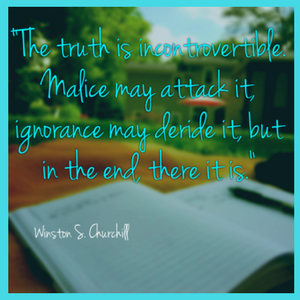 I’m a professional development provider by choice, by training, and by trade. And over the years, my experiences and research has lead me to several evidence-based conclusions about adult learners.
I’m a professional development provider by choice, by training, and by trade. And over the years, my experiences and research has lead me to several evidence-based conclusions about adult learners.
In this blog I explore three truths about adult learners and a “make’n take” that won’t make you cringe!
First, adult learners are diverse.
This means, professional development (#PD) providers need a variety of strategies to support their learning. When we argue whether adults learn better online or on-ground, in groups or through lectures, and by doing or by listening, we’re missing the point.
The fact is, we all beneft when we are given the opporutnity to learn in different ways.
For example, depending upon the topic, situation, and even how much sleep I’ve been getting, I may be able to learn about brain development through reading a book. However, if I want to apply the content to my work, I may need to write about it and discuss with others.
Second, adult learners benefit from instruction that is:
- Self-initiated, self-constructed, and self-directed
- Built upon innate curiosities and interests
- Results in meaningful solutions
- Inspiring and fun
Third, adult learners deserve meaningful educational opportunities and supportive learning environments, regardless of delivery format, length, or group size.
Thus, #PD needs to be grounded in constructivism (e.g., Piaget’s work and writings) and constructionism (e.g., Papert’s work and writings). Ultimately, this need for “both/and” instead of “either/or,” is just another example of the mind-body (oh, and heart) connection.
Bottom line – adult learners need to be active in the learning process, both mentally and physically.
In designing #PD for adult learners, what if our mindset shifted, and a primary question became, “How can I create opportunities for adult learners to make something?”
A series of follow-up questions might include:
- Is there a recommended practice that I want learners to acquire and use, but I’m less concerned about how the practice is delivered?
- Who do the adult learners serve, and would it be useful for them to create something tangible for this audience?
- How will the adult learners collaborate with others to make something, and how will they have opportunities for feedback and reflection?
“We do not learn from experience… we learn from reflecting on experience.”~Dewey
Here are just a few ideas to get you thinking about when you could create opportunities for adult learners to make something.
…and I don’t mean traditional Make-and-Take activities we may see at many #ece conference.
- Preservice students create a personal manifesto that includes their non-negotiables, professional policies, and teaching philosophy.
- Trainers and coaches create support materials for delivering interventions during daily routines at home and in child-care settings.
- Classroom teaching teams create something other than a traditional embedding matrix designed to prompt intentional instruction. They create something that is unique to their children, district privacy policies, and daily schedule.
Other ideas where adult learners can “make something: during #PD:
- Offer contemplative practice activities that provide opportunities for deeper self-reflection.
- Create a makerspace where materials/objects can be created/altered to ensure universal design for learning.
- Design a long-term project (e.g., aligning state standards and program’s curriculum) for opportunities to work through the entire process from design to evaluation of outcomes.
“Tell me and I forget, teach me and I may remember, involve me and I learn.” ― Benjamin Franklin